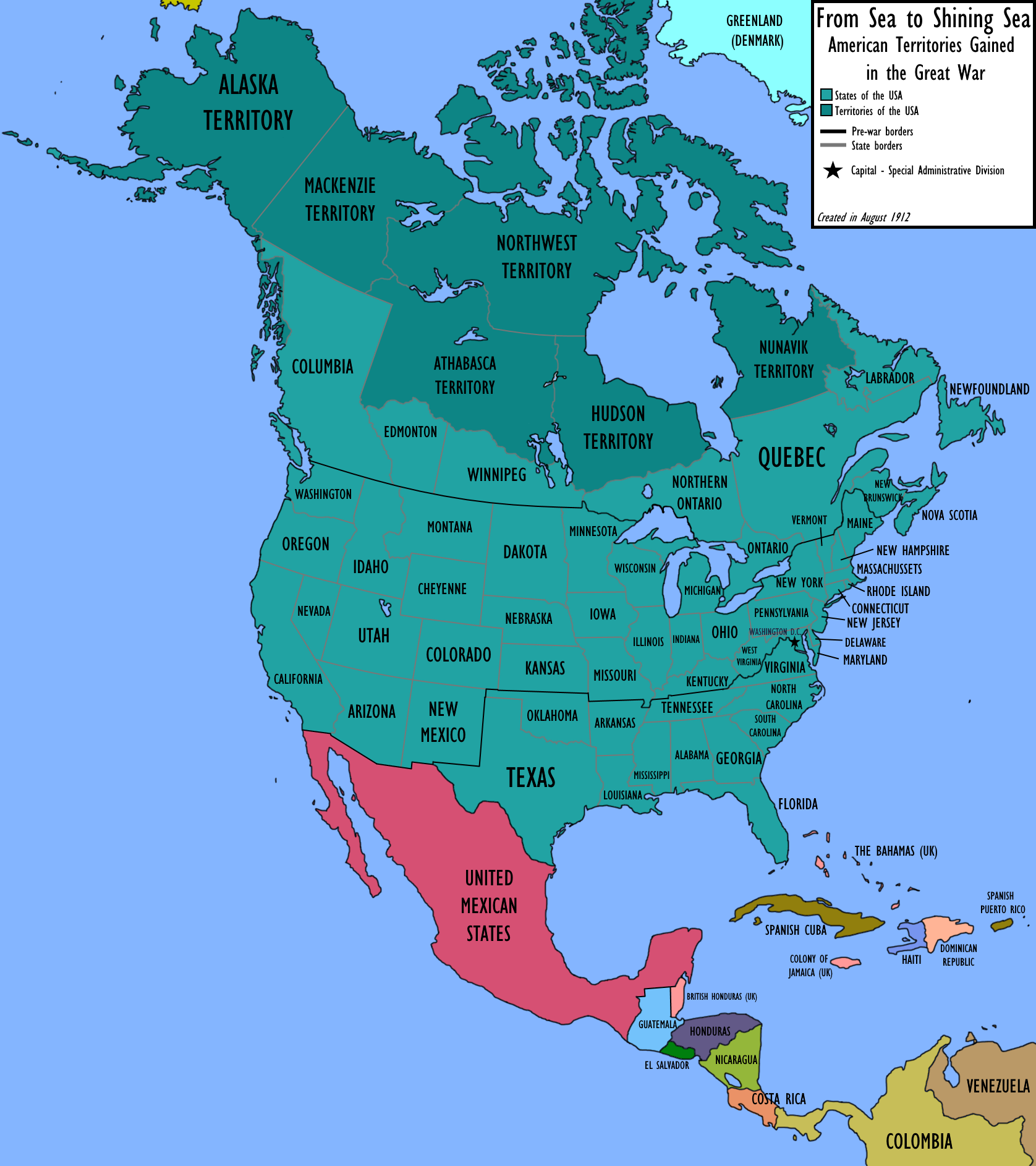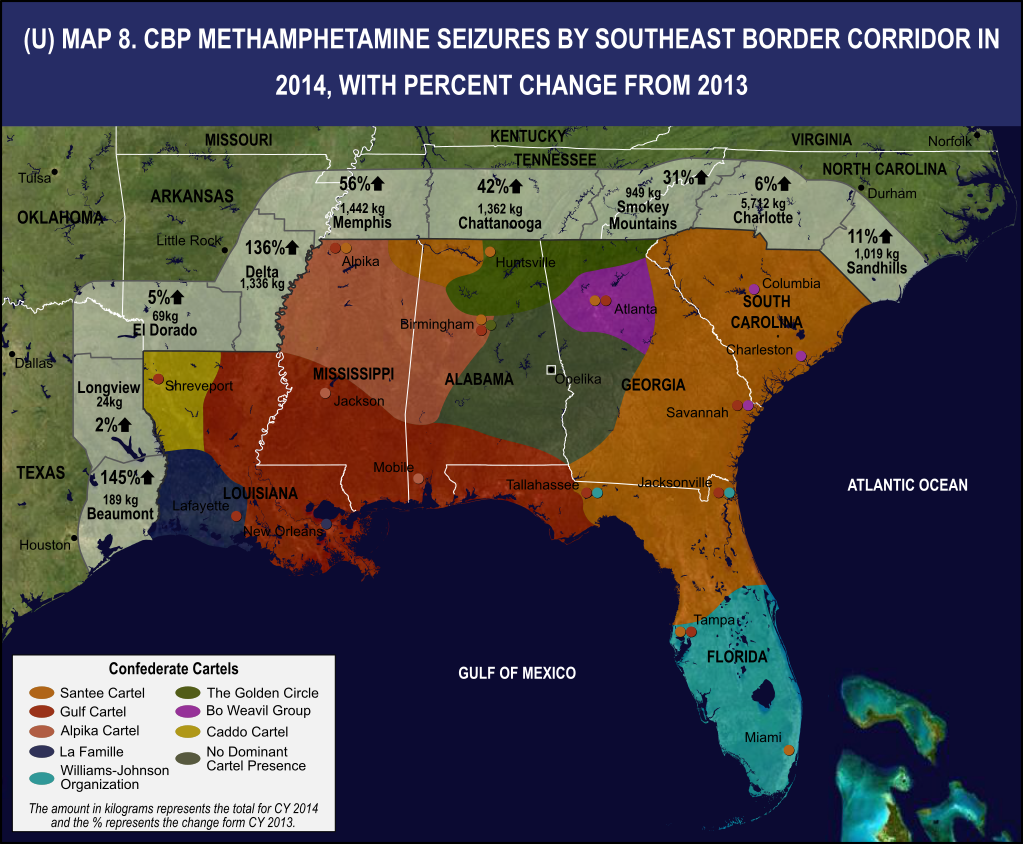[Decided to go with a simple concept, a Confederate victory turned into an America-wank. I do not have
that much knowledge on North America, so excuse any small inaccuracies, but feel free to ask any lore questions in case anything is unclear.]
After the success of the Confederate offensive in the autumn of 1862, Washington was in a dire situation. In the final moment, government officials from both sides came to an agreement called the Washington Accords, perhaps the most humiliating piece of paper in American history. The USA were forced to recognize the seceded Confederate States, and sign a non-aggression pact with them.
Despite the situation in North America, the rest of the world continued. The German Empire unified and rose to power, while in the 1870's a race to colonize Africa began. In fact, tensions continued to rise throughout the late 19th century, culminating in a series of crises over colonial holdings in Africa. Finally, in October of 1906, war broke out again between Germany and France over colonies in Equatorial Africa, and all hell broke loose. Russia and Serbia joined on France's side, while Austria-Hungary and Italy supported Germany. The final straw for the USA was the declaration of war by the United Kingdom, and their hatred of the somewhat pro-British CSA combined with a significant German and Irish population, led to the declaration of the war on the side of the Triple Alliance, now the League of Unity.
The first campaigns of the North American Theater included major battles between the USA and the Confederacy, who of course joined the Entente immediately. Initially, there were fears of a British invasion from the North, and so the Northern Frontier Plan was created: most of the army on the border with Canada was near St. Laurence, with smaller forces in Detroit, Grand Forks and Seattle. However, only skirmishes occured and so many troops were withdrawn to fight in the South. The first CSA cities to be threatened were Nashville and Memphis, while in Virginia strong defenses prevented any advances. By March of 1907, brutal battles in the two cities mentioned above had ended in a phyrric Union victory. Advance was temporarily halted, but only to reorganize and continue. This was taken advantage of by the Confederates, who tried to recover lost ground in counterattacks. Unfortunately for them, they were only able to push by grinding against enemy lines and the Spring Offensives are generally regarded as a failure. Attacks in Maine by British Canada occured as a distraction, but that didn't help either.
After a year, the situation was much more quiet. Small gains had been made by each side, with the only notable action taking place in New Mexico, where the two sides fought each other in a disorganized manner. However, the same could not be said about Europe; British support in the Western Front was causing the League of Unity lines to almost collapse, while the Union allies were also having trouble in the East, as they faced a tiring campaign against the Russians and problems in the Balkans. This meant that, if the Union didn't act quickly, they could lose the entire war. Therefore, Operation Knife was launched: it started with a massive spearhead offensive into Virginia, the most fiercely defended CSA area. This aimed to end the potential treat to Washington, and deal a substantial blow to their enemies. The critical breakthrough happened on the 19th of July, 1908, as Confederate forces near Harrisonburg collapsed under pressure, opening the road to Charlottesville, which was captured on the 8th of August, and eventually Richmond
The Battle for Richmond was, of course, brutal. Feint attacks from both sides occured during it, and the suburbs were significantly damaged, until after almost exactly two years since the declaration of war, the center of the town was reached. By the end of October, enemy forces had completely withdrawn from Richmond; still, the war in the South continued. Throughout 1909, offensive action was almost rushed so that the League could be saved before collapsing. By the end of the year, all large Confederate cities had been reconquered, and only small elements of resistance remained. This was when the next, and most important battles began: the War for Canada. Unfortunately, the attack had to wait until spring of 1910 due to the winter, and that was when the League reached its nadir: Franco-British forces had even reached the banks of the Rhine in some points, and Austria-Hungary was on the brink of collapse. That was when USA troops received the green light to invade Canada.
British garrisons in Vancouver and Saint John were swept away; amphibious American regiments crossed chokepoints between the Great Lakes; intense naval bombardment sessions began across coastal Nova Scotia and New Brunswick. The British Expeditionary Force had to now be spread between two fronts in Canada and France: the reason was that Canada should be protected at all costs, or else a united North America would be knocking on the european Entente members' door. However, it was simply not possible, and a desperate Ottawa-Montreal-Québec line on the St. Lawrence and Ottawa rivers had to be formed. By the start of 1911, the line couldn't be held anymore, and Quebec was under full Union attack. The Canadian government spiralled into disaster, and the invading forces cooperated with natives in the north to secure every small piece of the region. The war in North America had ended, and now it was time for the war in Europe to end too.
The USA tried to put pressure on the French and British by invading their colonies in the West Indies: the Bahamas, Jamaica, the Turks and Caicos and more were all invaded one by one, but the Entente was stubborn. Only after the Germans and Italians broke through on the Western Front with American support, was the Entente forced to seek peace. In the final Treaty of Toronto, that was signed in August 1912 (coincidentally almost exactly 100 years since the War of 1812 had started), Canada and the CSA were entirely given to the USA, while the UK was only given the colonies in the Caribbean back. The Union became a continental power, stretching from Alaska to Florida, from California to Ellesmere Island, from sea to shining sea.

